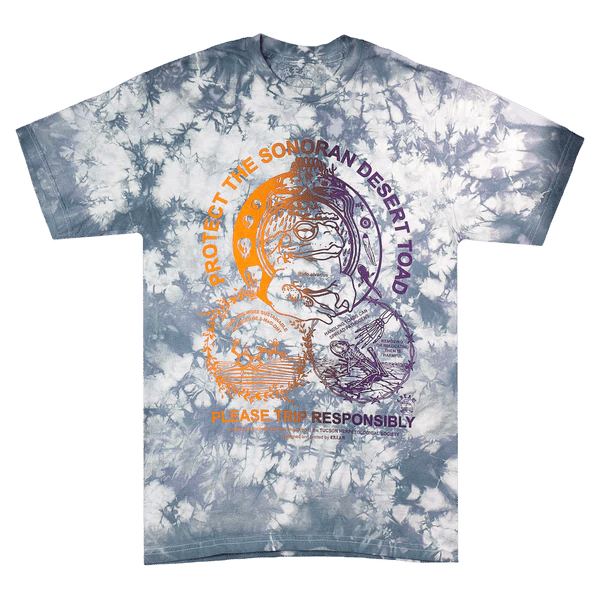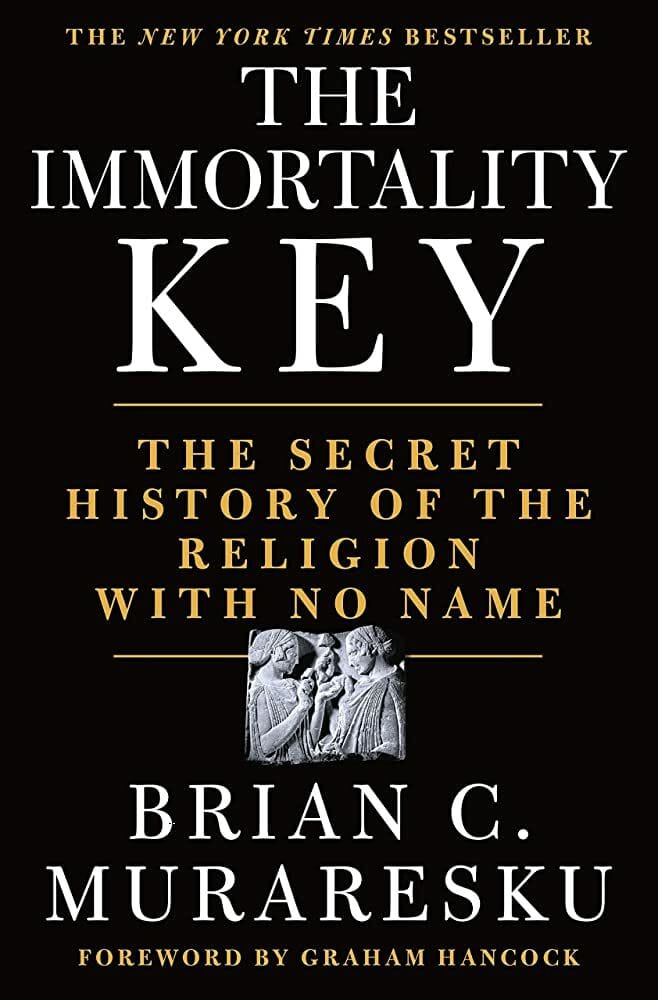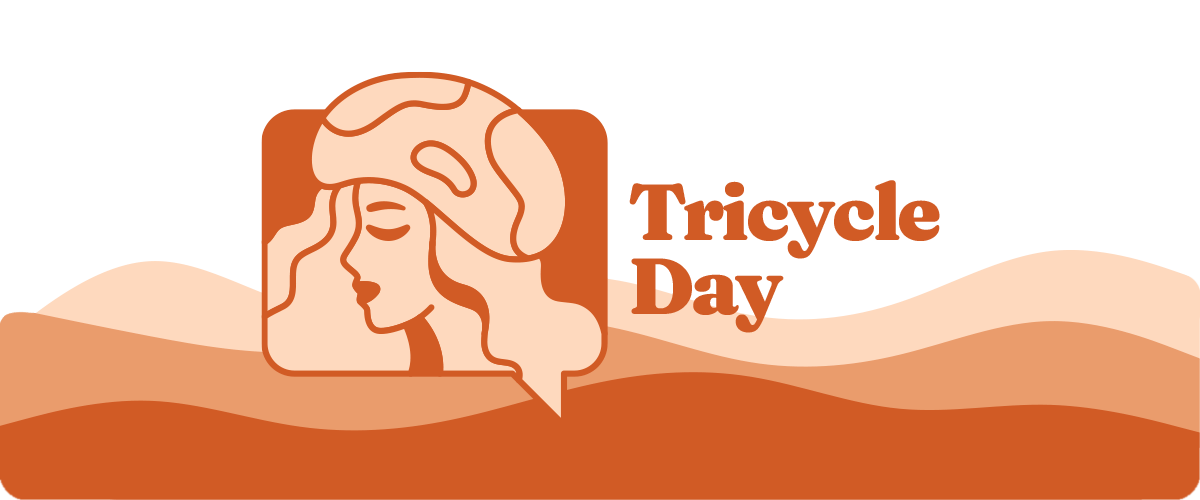
Welcome to Tricycle Day. Fire up your synapses because we’re bringing the neuroplasticity HEAT today. 🔥
Read on to make those sweet, sweet brain connections. 🧠
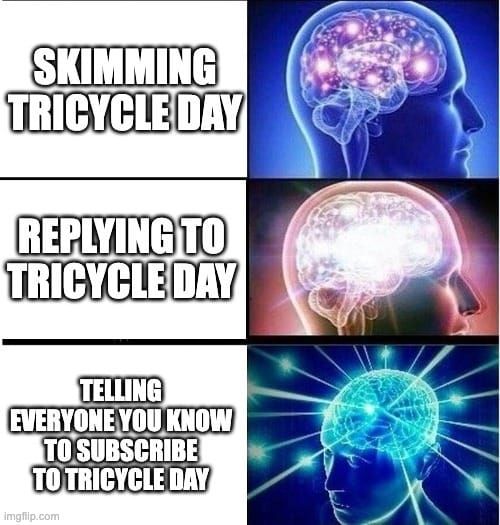
You want that galaxy brain, don’t you?
Let’s get into it, brainiac. 👇

The top 5 biggest psychedelic developments from the past week
1. Neuroscientists made a breakthrough in understanding how psychedelics work
Scientists at UC Davis, who just launched their Institute for Psychedelics and Neurotherapeutics this month, are already dropping knowledge bombs and making headlines.
Before your eyes glaze over from science, trust us. This is a big deal. So we’re breaking it down in plain language.
Here’s what we already knew:
Classical psychedelics bind to proteins in brain cells called 5-HT2A receptors. The same receptors also bind to serotonin and antidepressant drugs like Prozac and Zoloft.
Now here’s what we just learned:
5-HT2A receptors exist not only on the surface of brain cells, but also inside them. Unlike serotonin, psychedelics can easily cross the cell membrane into the inside of a cell and reach those internal receptors.
It’s the binding of psychedelics to the interior 5-HT2A receptors, which other drugs can’t reach, that triggers the brain-building effects psychedelics are known for.
✅ Growth of new brain cells
✅ Development of new brain connections
✅ Creation of new brain teasers
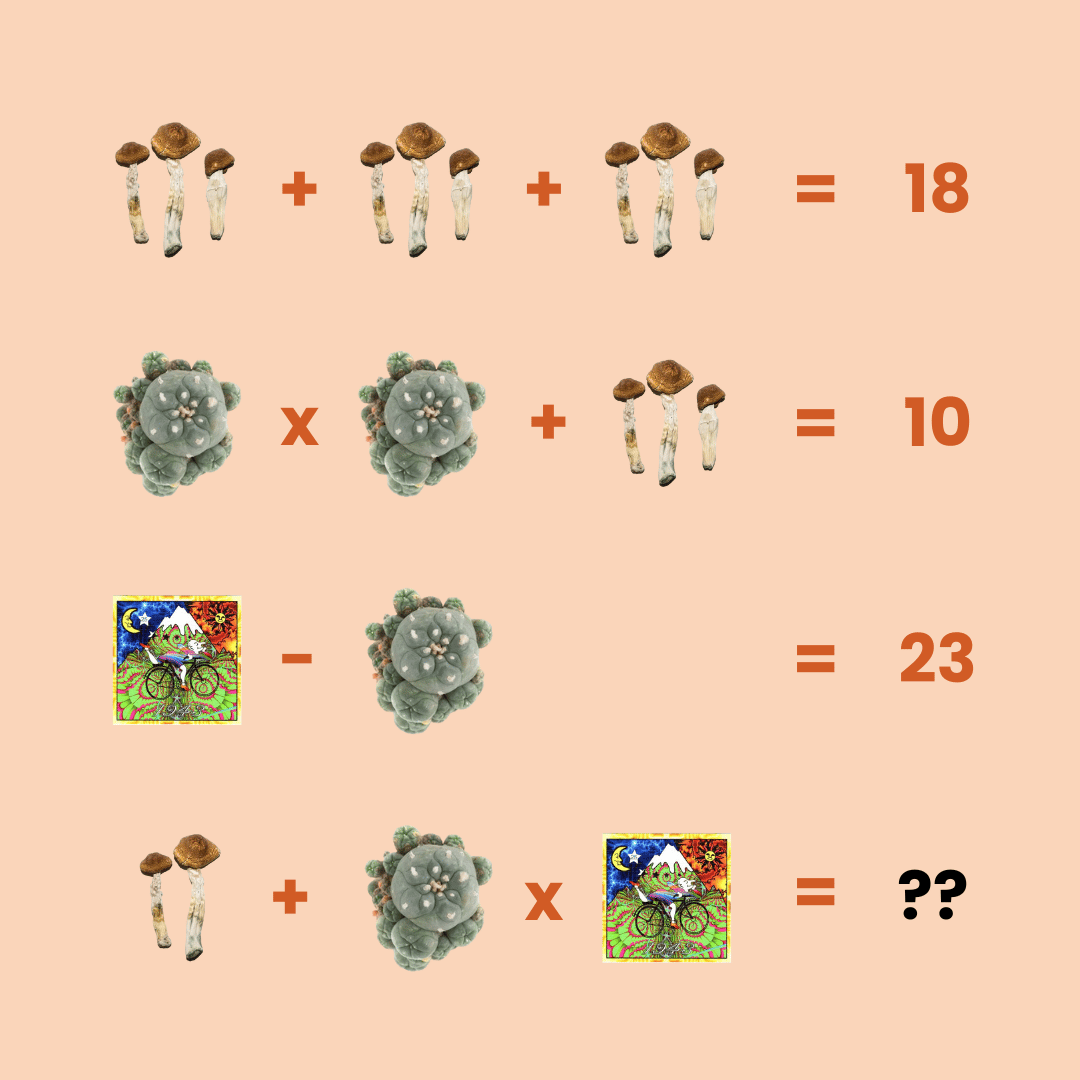
The answer is clear as day if you’re tripping.
Okay, fine. Maybe we made that last one up. But if you reply to this email with the correct answer, you might win a prize. 👀
2. European lawmakers want to speed up psychedelic research
Europe is falling behind the US and Australia in the movement to recognize psychedelics as medicine.
You read that right. The same continent where you can walk into a “coffee shop” and buy a pack of magic truffles, no problem, is trailing the home of the War on Drugs. Talk about a brain buster.
But some Members of European Parliament (MEPs) won’t stand for it. They’re sick and tired of watching the European Medicines Agency (EMA) sit on their hands.
So they took the most aggressive action they could possibly imagine.
They wrote a letter. 😱
In it, the MEPs demanded the EMA “play a more active role” in catching Europe up with the rest of the world by preparing reports, organizing workshops, and collaborating with Europe’s drug and drug addiction agency to reschedule psychedelics, based on their strong medical potential.
Mhmm. How do you like that medicine, EMA?
3. A Canadian company is trying to make an ayahuasca pill
Vancouver-based Filament Health wants you to have a mystical experience in the convenience of a pill.
While the idea of packing an entire ancient Amazonian ritual into a tablet you pop with a glass of water right before your Flintstones vitamins might raise a few eyebrows, the company is already well on their way.
Filament, who is betting on natural, plant-derived products over synthetic alternatives in the future of psychedelic medicine, is close to receiving authorization from the FDA to conduct a Phase 1 clinical trial of their medical-grade ayahuasca pill.
I don’t care if it’s served as a thick muddy stew, a shiny white capsule, or a sour gummy worm… someone better tell ‘em.
There’s nothing “convenient” about ayahuasca.
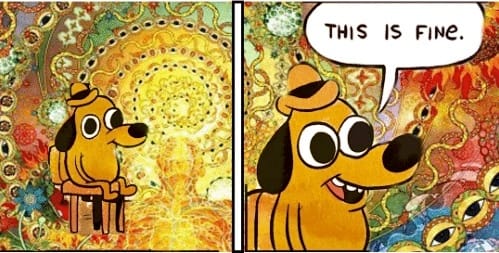
Ready to face the day!
4. Arizona could spend $30 million on clinical trials of whole, natural mushrooms
A very pro-psilocybin bill in Arizona, which we covered last month, just got one step closer to being passed.
A panel of lawmakers unanimously approved House Bill 2486, which would provide $30 million in grants to study the effects of psilocybin on over a dozen physical and mental health conditions.
Here’s the kicker.
Most research to date has looked at synthetic psilocybin. But with this milestone, Arizona is on track to be the first state to sponsor controlled trials of whole, natural mushrooms.
The last step is for the measure to be passed by the full legislature and signed by Democratic Gov. Katie Hobbs.
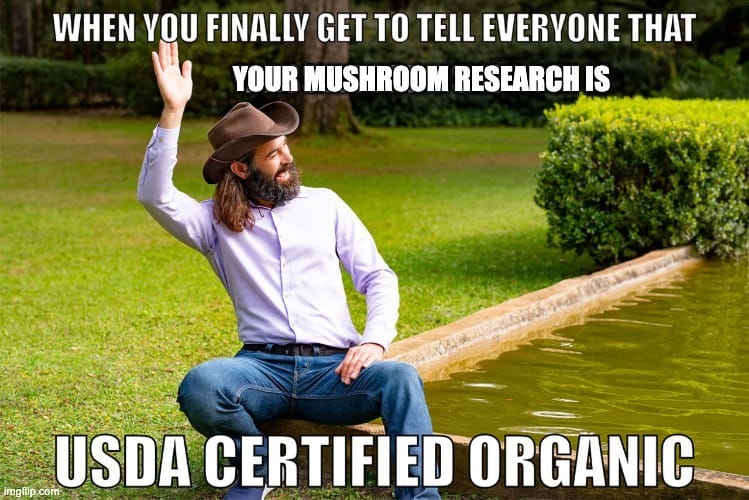
Don’t fumble this one, Katie.
5. A non-profit wants to heal Traumatic Brain Injury with mushroom ceremonies
Veterans are front and center in many of the conversations around psychedelics. That’s because, sadly, the trauma of war often leads to the debilitating mental health conditions that psychedelics have been shown to relieve.
But the trauma isn’t all mental. Traumatic Brain Injury (TBI) is also widespread among vets.
A new research program from the Heroic Hearts Project, in partnership with Imperial College London and Beckley Retreats, will investigate how psilocybin retreats can help vets with TBI heal physiologically AND psychologically.
The observational studies will follow a small group of vets who travel to a beautiful setting in nature to participate in individualized coaching, intention setting, and two medicine ceremonies, interspersed with breathwork, yoga, and mindfulness integration.
Keep in mind, the retreats are for war heroes only, so no matter how lovely they sound, please don’t go banging your head against the wall. 🤤

Hot takes from around the web
I tried ketamine to treat my depression. It was terrifying. [Washington Post]
Turn on, tune in to psychedelics’ benefits [Politico]
The rise of psychedelic retreats: the most intrepid, life-changing trip [Condé Nast Traveller]
Can psychedelics heal Ukrainians’ trauma? [New Yorker]

Our favorite art, products, and opportunities for mind expansion
“Protect the Toad” Sunset Tee from the CREAM shop — The Sonoran Desert Toad (Bufo alvarius) is prized for its psychoactive secretions, which contain the mega-powerful 5-MeO-DMT. But due to its increasing popularity, local extinctions and displacement of toads are real threats.
A portion of proceeds from this drop will be donated to the Tucson Herpetological Society to promote awareness, research, and conservation of the toad.
The Immortality Key — The Ancient Greeks must have been tripping, right? Brian Muraresku’s bestseller takes you on a global hunt through history to uncover the role psychedelics have played in the origins of Christianity and Western civilization.
Last Week Tonight — John Oliver dedicated the season premiere of his satirical news show to making the case for psychedelic-assisted therapy. Come for the lols; stay for education.
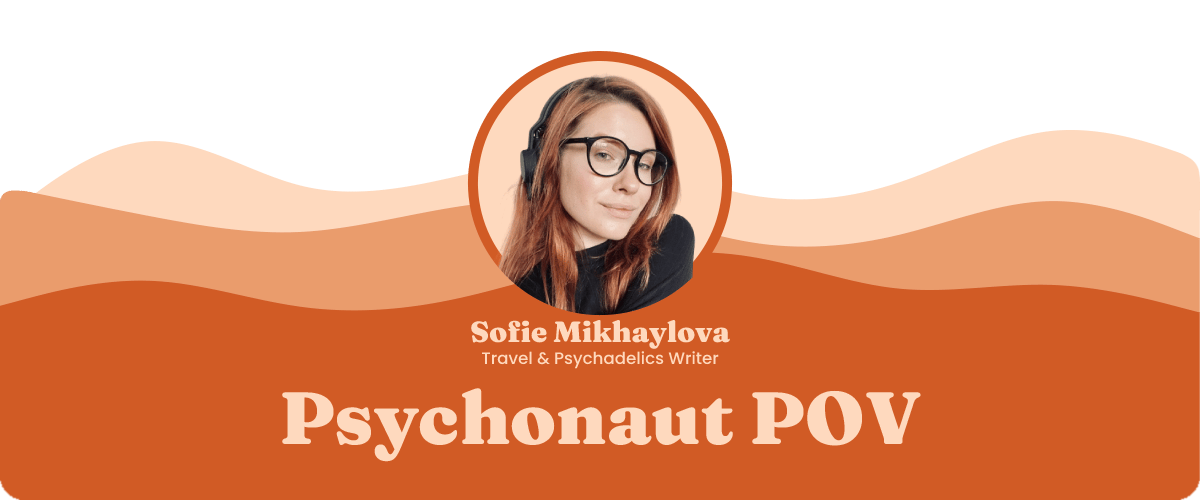
Q&A with Sofie Mikhaylova, Travel & Psychedelics Writer
How did you first encounter psychedelics?
I consider myself a bit of a late bloomer when it comes to psychedelics. I was aware of shrooms as a student, but I was always hesitant to experiment with them because the idea of “losing control” scared me. It was only in my late 20s that I started to explore and feel more comfortable with letting go.
I started microdosing mushrooms in the middle of the pandemic, and after that I felt ready to take a bigger dose with my partner, who had done shrooms many times before. We were at home in the middle of winter with a David Attenborough documentary on TV. It was beautiful.
Your writing mostly focuses on travel and psychedelics, which might seem like an odd combination to some. Is there a common thread there?
Travel and psychedelics, to me, are pretty intertwined. I’ve traveled to psychedelic conferences and retreats. But I’d love to do more writing around traveling for psychedelics.
I’d love to write about the geography and adventure of going somewhere specific to try, say, iboga, from a medicine man in Gabon. I would love to write about the business and ethics of destination psychedelic retreats. I would love to go looking for mushrooms in the wild, to report on muddy shoes and rainy walks, or to cover the search for the Bufo toad in the Sonoran Desert with the sun on the back of my neck and my ears wet with sweat.
My writing rarely blends the two topics together in one piece right now, but I want that to change this year.
You’ve written about this idea of “psychedelic exceptionalism.” Why is it dangerous for people to think differently about psychedelics vs other drugs?
I think it’s dangerous because it creates — or, rather, deepens — the existing divide between users of other drugs and users of psychedelics. It creates a sense of elitism and classism among psychedelic users.
I think that any drug that is used with the proper intent can have healing and restorative effects. Who’s to say that someone’s heroin experience wasn’t as spiritual as your mushroom trip? Why? Removing and challenging the social stigma of psychedelics shouldn’t be done at the expense or marginalization of other drugs and their users.
Dr. Carl Hart’s book Drug Use For Grown-Ups is a must-read on this subject. I highly recommend it to anyone in the psychedelic space. For a quicker read, this article is a great resource.
Have you ever had a “bad,” difficult, or challenging trip?
When I was in Jamaica on a psilocybin retreat courtesy of Silo Wellness, I had a very intense trip that started with the intent to look deeper inside myself. I cried heavily for hours and was unable to move my body.
I wouldn’t necessarily say it was a “bad” trip, but it was emotionally draining and, at times, hard. I had to peel away a lot of layers and be willing to meet myself where I was. I had let go from the beginning, and I could really only just wait and see what the mushrooms wanted to show me.
What do you get from psychedelics? Why do you return to them?
I trip infrequently, when I feel the call. I return when I need a release or a connection. I find psychedelics help me see things more clearly. They don’t give me the answers; they just show me where they are.
Follow Sofie on Instagram and LinkedIn, and read more of her writing on her website, Medium, and newsletter Sofieland.
That's all for today! If you like what you see, share Tricycle Day with all your friends. New subscribers make us trip! 🫠
So, how was your tricycle ride?
One Cyclist’s Review 👍

DISCLAIMER: This newsletter is for educational and informational purposes only and is not intended as a substitute for professional medical advice. The use, possession, and distribution of psychedelic drugs are illegal in most countries and may result in criminal prosecution.

